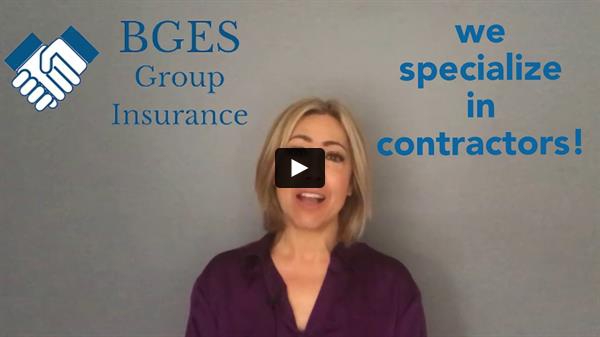One of the hallmarks of the holiday season is the company Christmas party, but with the COVID-19 pandemic in hyperdrive, many companies are rethinking their plans.
A number of businesses have cancelled their parties altogether, but other managers feel that in light of this very difficult year for many people, a company Christmas party might be just what employees need to lift their spirits for a while.
On the other hand, with the Centers for Disease Control even recommending that people not get together for family celebrations like Thanksgiving and Christmas, an office party would completely go against those recommendations.
Also, you could face liability and potential legal action if you do hold an in-person party and members of your staff come down with COVID-19.
Instead of in-person events, many companies are planning Zoom teleconference “parties” and they are asking their workers to join in by getting dressed up and bringing their favorite beverages and snacks to the online do.
According to Challenger, Gray & Christmas, Inc., 55% of human resources professionals surveyed said their company is not having a holiday celebration this year, which is the highest number since the consulting firm started surveying employers about their holiday plans.
Here’s what the survey found:
- 45% of HR professionals said their company had cancelled holiday party plans due to the pandemic.
- 5.3% said cost-cutting was the reason for cancelling their party.
- 4% said they never host holiday parties.
- 23% said they were unsure of holiday plans and were awaiting state and local guidance before deciding.
“It is no surprise that many companies are forgoing the holiday party this year,” said Andrew Challenger, senior vice president of Challenger, Gray & Christmas. “It’s difficult to celebrate and implement all the precautions needed to keep everyone safe. The last thing any employer wants is an outbreak due to their year-end party.”
Additionally, the survey found that 55% of respondents continue keeping most of their staff working from home and another 5.5% have all of their employees telecommuting.
When asked when employers plan to bring all workers back to the office, 44% were unsure or did not answer. Another 21% planned to bring all workers back in early 2021, and 8% will wait for a vaccine.
Precautions for an in-person event
The companies that said they would be holding in-person holiday events plan to take steps to reduce the chances of COVID-19 spreading among their workers by taking the following precautions:
- Requiring social distancing while at the party.
- Requiring all attendees to wear masks.
- Providing hand sanitizers, alcohol wipes and face masks.
- Taking temperatures of all workers when they arrive.
- Limiting the number of employees at the party.
- Holding the event in a large area where employees can socially distance from one another (venues should be well-ventilated with several doors and windows).
- Keeping hand sanitizer in various locations around the office.
- Hosting outdoor events.
- Regularly checking the CDC’s website to be up to date on precautions and advice.
- Keeping up on state and local guidelines to get more accurate information on current case levels in their area.
Other options
Some companies that plan to skip festivities this year have come up with other ways to celebrate and reward their employees during the holidays, including:
- Organizing virtual gift exchanges or virtual Secret Santa exchanges.
- Giving away cooking classes or gifts like Apple Airpods or other small electronics (the cost per person will often be less than if you held an actual party and paid for the facility, catering, decorations, entertainment and drinks).
 Assembling care packages with baked goods or gift certificates and delivering them to employees’ doorsteps.
Assembling care packages with baked goods or gift certificates and delivering them to employees’ doorsteps.
BGES Group’s office, located in Larchmont, NY is a full service insurance agency offering, Property, Liability, Umbrella Liability, Business Auto, Bid & Performance Bonds, Inland Marine, Worker’s Compensation, New York State Disability, Group Health, Life insurance, Personal lines and Identity Theft.
Special Contractor Insurance Programs (NY, NJ, CT) – We we have 50+ insurance companies to market your general liability, umbrella liability, business auto, workers compensation, bid & performance bonds and group health coverages. We help contractors set up proper risk transfer. If you’re a contractor we offer extensive information about insurance markets, coverages, risk transfer, subcontractor screening, ways to lower your insurance costs.
BGES Group are Worker’s Compensation Specialists for the States of New York, New Jersey and Connecticut – Issues we address: 1) Lowering pricing – we have specialty programs that can save you up to 40%; 2) Finding a new company; 3) Replacing policies that are being cancelled or non renewed; 4) Audit disputes; 5) Company creating fictitious payroll at audit time; 6) Lowering high experience modifications factors; 7) Misclassification of payrolls; 8) Lowering or eliminating renewal deposits; 9) Getting coverage when you’ve been without for a few months; 10) Covering multiple states under one policy; 11) Eliminating 10% service or policy fees; 12) Timely issuance of certificates; 13) Always being able to get someone on the phone or by email when you need to.
If you would like to speak with us call Gary Wallach at 914-806-5853 or click here to email or click here to visit our website.
Company: BGES Group, 216A Larchmont Acres West, Larchmont, NY 10538
e-mail: bgesgroup@gmail.com
website: http://www.bgesgroup.com
© – Copyright – 2020 – BGES Group







 If you’re a contractor who is unhappy with general & umbrella liability insurance rates or coverage we want you to know there is a way to get HELP!
If you’re a contractor who is unhappy with general & umbrella liability insurance rates or coverage we want you to know there is a way to get HELP!











